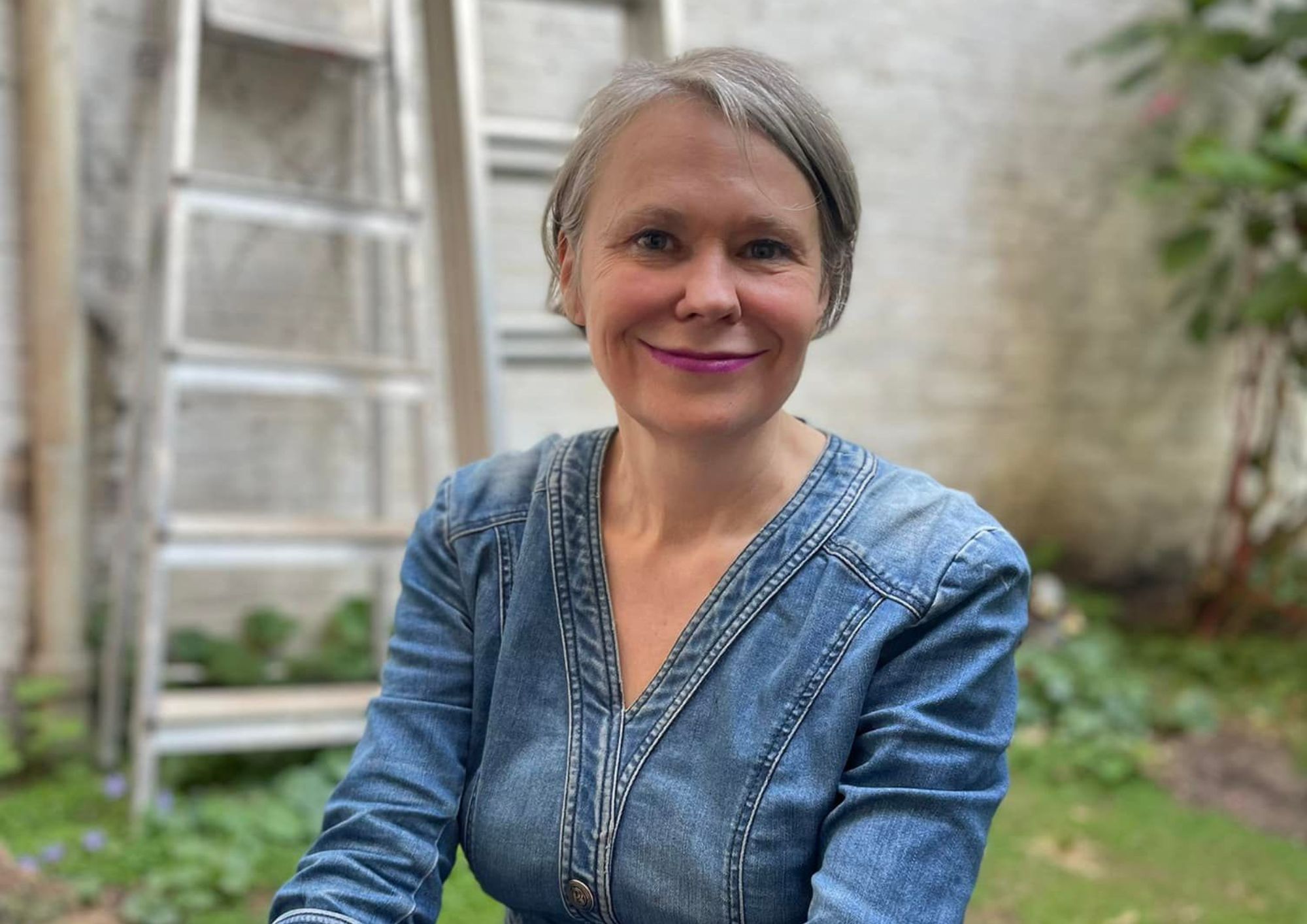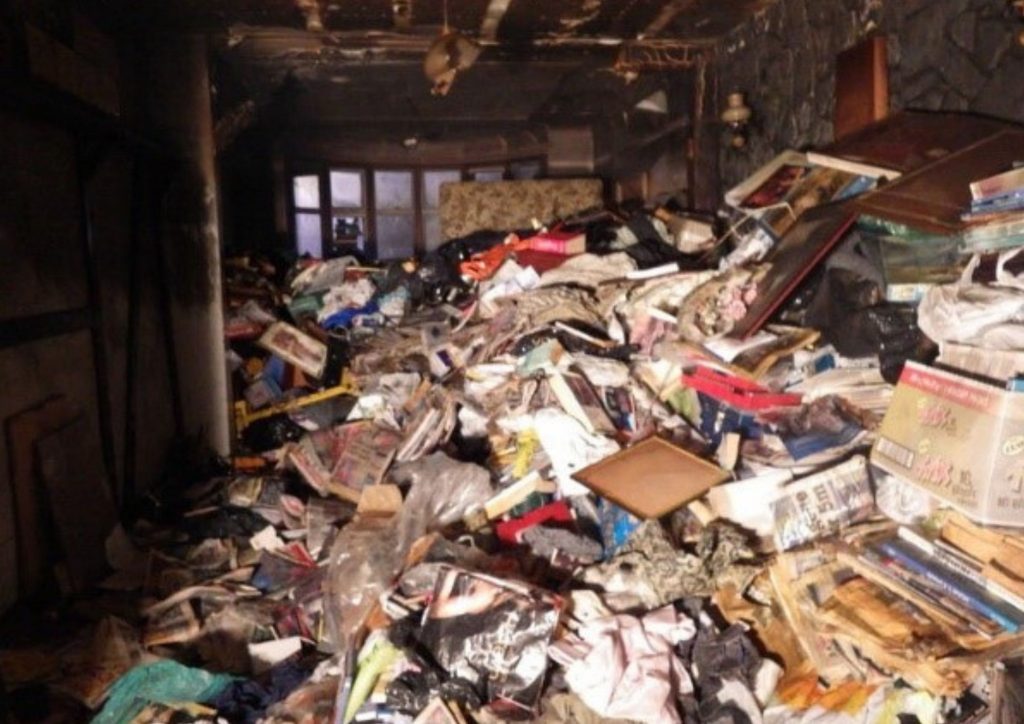Hoarders struggling to get support as fire brigade warns of safety risk
Mental Health Awareness: 'Often hoarding comes with this huge sense of isolation and lonelines'
Friday, 19th May 2023 — By Frankie Lister-Fell

Polly Arrowsmith kept on acquiring more and more stuff

FIRE brigade services have urged those suffering from hoarding to seek support as the number of blazes connected to the problem increased in London by 25 per cent last year.
But shame, landlords and therapy waiting lists often prevent people from tackling this commonly misunderstood mental health condition. Hoarding is when a person becomes distressed at discarding items, which leads to an excess of possessions that can result in parts of their homes becoming unusable. It can also block fire exits and electrical cupboards that exacerbate risk of death in a fire.
Last year, the London Fire Brigade attended 29 hoarding-related fires in Camden and 34 in Islington.
Marteka Swaby, psychotherapist and founder of Mind-Hub Euston which has helped clients that hoard, told the New Journal: “I’ve worked with someone before who had a tent in her house. She used to collect empty cleaning bottles and lots of cardboard and have them all stacked up around her tent.
“Because her kitchen was unusable [as she had a lot of stuff], she used to cook on a camp stove near her tent. So you can imagine what a fire hazard that was. Often hoarding comes with this huge sense of isolation and loneliness.”

Marteka Swaby
She added: “People that I’ve worked with have often experienced some kind of bereavement that’s left them feeling really low. The things that they collect are often pieces of themselves or the people that they want to keep alive.”
Kimberly Gordon, advocacy team leader at Hoarding UK which is based in Clerkenwell, said: “There’s an increasing number of people who have hoarded to such an extent that they’re sleeping in communal areas, like hallways in their block.
“There’s so little help out there for hoarding, it’s such a debilitating mental health condition because it manifests physically.”
She added: “Generally individuals are really cautious about approaching adult social care. They’re worried about the ramifications of it. Landlords don’t like people who hoard, so getting proper help is really difficult.”

A stock picture of extreme hoarding used by the London Fire Brigade
Hoarding lots of items can put structural pressure on buildings, endanger neighbours and attract pests.
Ms Gordon said local authorities and landlords book “blitz cleans”, cleaning services that clear people’s homes, that are enforced on an individual sometimes by a court injunction. “That can be absolutely horrifying to the person who is hoarding because you haven’t dealt with the mental issue and people just hoard again,” she said.
Psychotherapist and author Keeley Taverner, who grew up in Brent, said: “I always start small. Sometimes that might mean you bring an item to therapy and we can talk about it. Sometimes that results in us putting post-it notes on the items to work out what the attachment is.
“Then when you remove that item, the post-its are left and the person can see that they have attached associations to these things.”
With waiting lists for therapists on the NHS sometimes reaching two years, Ms Taverner said that finding targeted treatment can be difficult and often only available to those who can afford it.
But Polly Arrowsmith, who has recovered from hoarding, found solace in a free 12-step progrmame in the community, which is similar to Alcoholics Anonymous.
She doesn’t name the fellowship due to the programme’s anonymity rules. Ms Arrowsmith, who works in start-ups and lives in Angel, said: “I really started hoarding when I was making very good money. [My ex-partner] kept going back to New Zealand for months at a time. Rather than face the abandonment of my partner leaving, it was easy to numb the feelings by buying stuff.”
She initially bought designer clothes and then bought gifts for other people including her sister and charities which she would give away.
“If things were on sale I might buy 20 Lynx items. If you give 250 gift sets away it takes up quite a lot of volume,” she said.
“But I was only giving them away at Christmas so during the year all the stuff was adding up. “I realised buying stuff wasn’t really the answer. I knew it was a problem when I was doing it. I was very aware, but it’s like a compulsion.
“It’s about coping with loss. The fellowship is when I really got to grips with [hoarding]. For six years I’ve worked the 12 steps. It’s helped me a lot. “Sometimes now I can fall back into the trap. It’s not completely over. But I recognise it and I can just do something about it.”
Ms Arrowsmith will donate her remaining items in storage to people who can’t afford them through a social media campaign.
